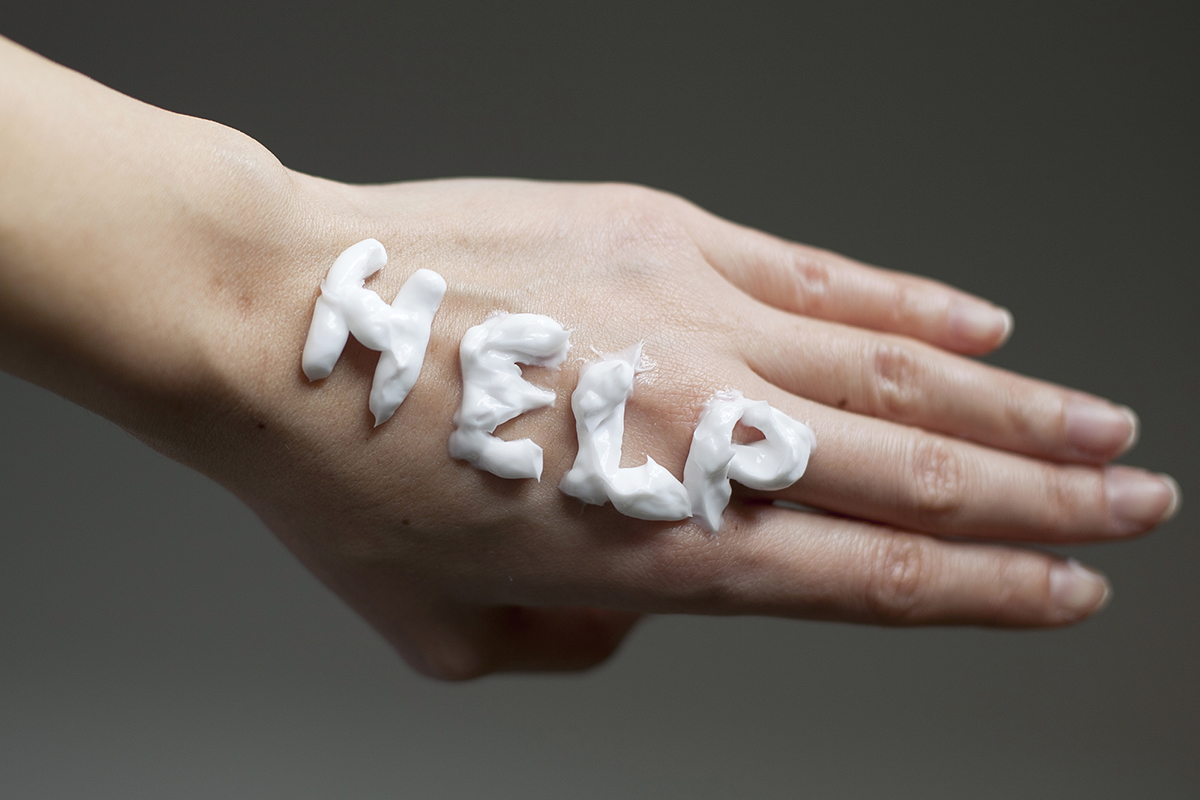Winter is the time of year when people most often complain of dry skin. It’s a matter of simple physics. Skin naturally holds moisture, and cold winter air doesn’t hold as much moisture as warm, humid summer air. The problem is compounded with wind chill (which acts like a rest room hand drier).
The result is that water is literally sucked out of your skin. Desiccation is even worse inside, where low humidity air from outside gets heated; warm temperatures promote even more evaporation from your skin surfaces.
Here are some concrete measures you can take to combat winter dry skin:
1) Take fish oil. Americans spend literally billions of dollars on skin creams and moisturizers. I say, get an internal lube job. Topping the list of natural skin moisturizing nutrients are the Omega 3 fatty acids, linolenic acid, eicosopentaenoic acid (EPA), and docosohexaenoic acid (DHA).
Ask any vet. When pet owners bring in dogs with “mange”—a dry, flaky skin condition—vets suggest they add canine flax oil and/or fish oil supplements to their dogs’ diets.
In addition to its moisturizing properties, fish oil acts as a natural anti-freeze for the skin; it also has potent anti-inflammatory effects. My fish oil of choice is the Biomega suite from Biotics Research.
2) Try GLA. An Omega 6 oil plentiful in black currant seed, borage, and evening primrose, oral supplementation with GLA improves skin barrier function and prevents moisture loss.
3) Don’t turn your home into a desert! The average humidity in the Sahara Desert is around 15%. In winter, the humidity in your house or apartment can dip below 10%. Overheating your dwelling makes things worse. Keep the thermostat set to 65 or less, and consider using a humidifier (remember to clean it frequently!) Houseplants, too, put moisture back into the air.
UPDATED: 12 Ways to Conquer the Winter Blahs
4) Protect your skin with gloves. This was driven home to me recently when I saw a patient with parchment-like skin on her hands. “It goes away in the summer,” she told me. “Do you wear gloves?” I asked her. “No, I hadn’t thought of that,” she replied.
Remember, even if you can grin and bear it when cold weather strikes, gloves should be an essential fashion accoutrement for temperatures below 50. Windchill can lower the surface conditions at your skin surface to near freezing and suck moisture from your skin. Don’t wait for frostbite to set in before donning your gauntlets.
5) Shower . . . less! Trick question: Do you practice good cold weather hygiene? “I shower once or twice daily!” you might reply indignantly. But frequent application of soaps (all soaps, to a greater or lesser extent) mobilizes dirt by dissolving and whisking away the protective oil layer on your skin surface. Washing less leaves the superficial sebaceous oils intact. Avoid prolonged and very hot showers or baths.
6) Slather on the coconut. Virgin coconut oil is a great skin moisturizer. It also has antibacterial, anti-fungal and anti-inflammatory effects. Research even supports its use for the itchy, irritated skin disorder, atopic dermatitis.
Ask Leyla: How can I use coconut oil in my cooking?
7) Try Manuka. A product of New Zealand, Manuka therapy cream is my favorite skin moisturizer. I even use it as an aftershave application, especially in winter. It’s not greasy, and it leaves my skin with a lustrous sheen.
As an added benefit, research supports its anti-wrinkle effects. A study published in Evidence-Based Complementary and Alternative Medicine found that manuka oil protects against photo-aging and collagen loss.
8) Apply hyaluronic acid. Hyaluronic acid plays a critical role in skin health with its unique ability to hold in moisture (1000 ml of water per gram of hyaluronic acid). This makes it a great and popular facial moisturizer.
9) Check your thyroid. One of the cardinal signs of low thyroid is dry skin. Have your physician perform thyroid blood tests. If they’re suboptimal, natural bio-identical thyroid replacement might restore your skin’s luster.
10) Make sure you don’t have allergies. Your dry skin might be due to eczema, in which case testing for food allergies might be warranted. A trial of elimination of the most common food culprits (eggs, dairy, and wheat) sometimes clears up dry skin patches. Alternatively, you might be suffering from atopic dermatitis; a dermatologist can perform a patch test to see if your skin is reacting to any one of a panel of common substances like fragrances, preservatives, lanolin, rubber, or metal from jewelry.
11) Don’t poison your skin. With the advent of COVID, we’ve all become compulsive handwashers. The ingredients in antimicrobial soaps and hand disinfectants are particularly caustic and desiccating. A recent review in the Journal of the American Academy of Dermatology explains why:
“Stringent hand hygiene can cause an acute loss of surface lipids due to lipid-emulsifying detergents and lipid-dissolving alcohols. As the lipid barrier of the stratum corneum is depleted and proteins are denatured, the attenuated skin barrier will exhibit increased transepidermal water loss (TEWL) and increased epidermal penetration of irritants and allergens, propagating an inflammatory response, resulting in hand dermatitis.”
I recently did a telemedicine consult with one of my patients who complained of new-onset hand eczema. I ascertained that she was in the habit of going shopping with while wearing “antimicrobial gloves”. I explained that these were superfluous; the new-think is that COVID-19 isn’t readily transmitted from surfaces. Even it were, avoiding touching the eyes or the nose after going out until you’ve washed your hands should neutralize any errant viruses, in the unlikely event you may have picked some up.
Applying alcohol-based disinfectants to your hands has drying and irritating effects; so too will harsh chemicals like N-alkyl dimethyl benzyl ammonium chloride and benzethonium chloride frequently used in hand wipes and pump dispensers.
Experts agree that a neutral, chemical-free soap will suffice. From the same review: “Soap removes dirt and inactivates viruses by disrupting the lipid membrane and intracellular lipids. There is evidence to support soap as a more effective method of hand hygiene than hand sanitizer.”
But too much soap will wash away the surface oils that protect the skin, so make sure to use moisturizer to re-lubricate your skin after that frequent handwashing.
I sometimes develop dry itchy skin from prolonged immersion in chlorine when swimming. I find Tri-Swim is an inexpensive moisturizer that you can slather on to rehydrate the skin surface. Works on hands, too.
Updated February 2021








